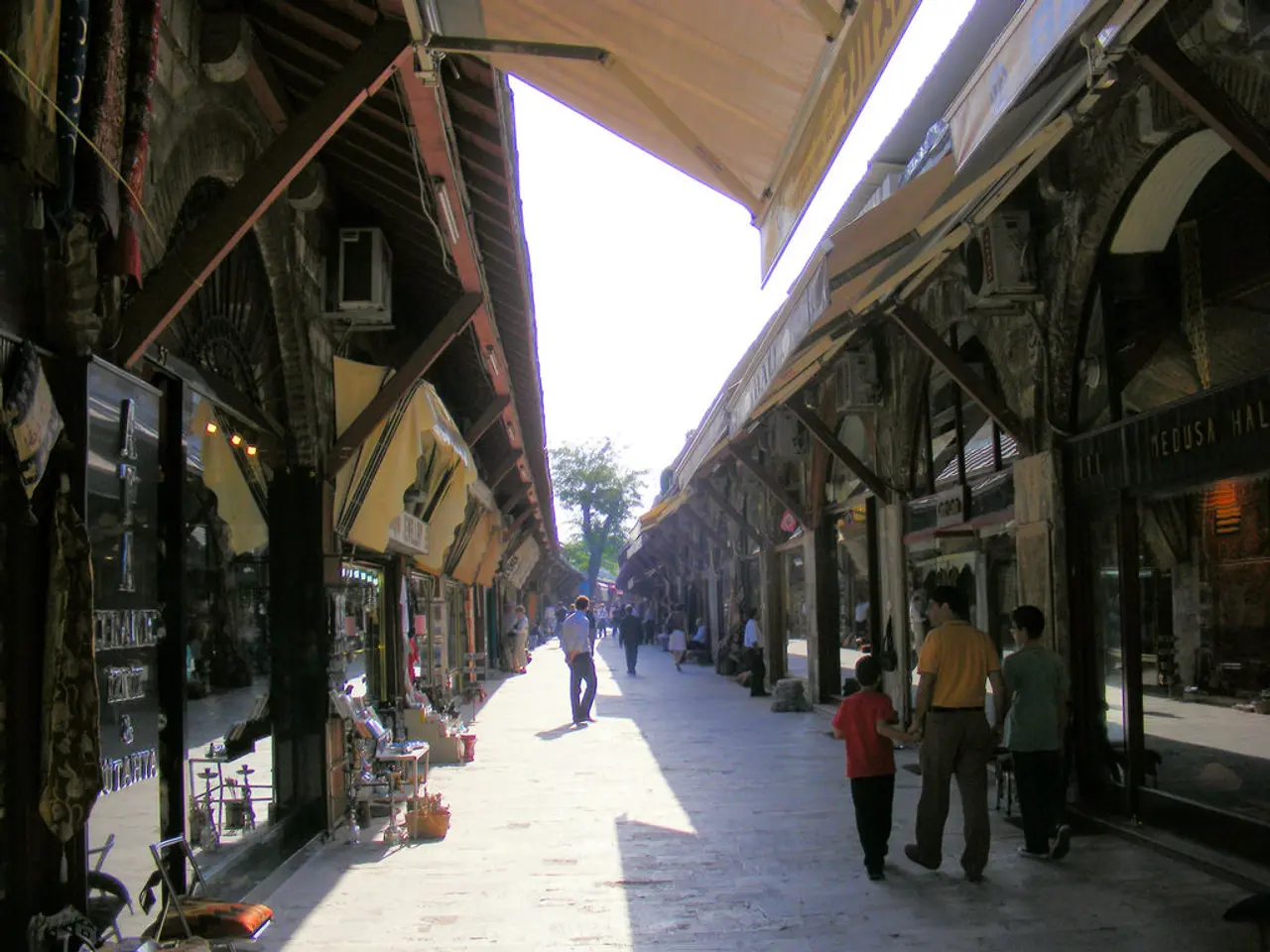Navigating Urban Spaces without Sight: Challenges Faced and Overcomes by the Blind Community
In the city of Freiburg, it's essential to be mindful of the needs and safety of visually impaired individuals. Here are some key tips to help create a more inclusive environment:
Offer Help Thoughtfully When assisting a visually impaired person, always ask before offering help and guide rather than grab. Describe surroundings clearly and communicate any obstacles or changes in the environment.
Clear Communication Speak directly and clearly, identifying yourself and others by name. Avoid vague references like "over there."
Accessible Assistive Tools In public spaces, ensure magnifiers, communication boards, or other assistive devices are easy to find and borrow, with clear signage.
Mindful Organization and Contrast Help by placing items in consistent locations, with color contrast and tactile labels where possible, to aid navigation and independence.
Digital Accessibility When interacting online, support or provide access to zoom functions, keyboard navigation, and screen readers that enhance readability and interaction for users with low vision or blindness.
Respect Autonomy and Emotional Support Respect their autonomy and foster inclusive activities, recognizing that visually impaired individuals may also experience emotional and social challenges.
Training in Assistive Technology Train staff or peers in assistive technology basics and etiquette to improve confidence and effectiveness in providing support.
For sighted individuals, it's crucial to keep blind guidance systems clear to ensure safety. These systems, consisting of plates with grooves for straight paths and bumps for turns or street crossings, are used by visually impaired individuals to navigate streets and traffic. Sighted people should not stand on these systems to avoid impeding the orientation of visually impaired individuals.
Hans-Georg Fischer, a visually impaired individual, states that when offered help, blind people are usually happy to receive it. Fischer also appreciates when others share information about incoming trams at tram stops. At least the announcements in the tram tell him when to get off. Fischer wishes for loud announcements at tram platforms indicating which tram has just arrived.
Blocking blind guidance systems is not an administrative offense and is not monitored by the city. However, it poses a danger to visually impaired individuals. City's disability commissioner, Sarah Baumgart, recommends pruning hedges on sidewalks to prevent injury to blind and visually impaired individuals. If branches or thorny hedges protrude onto the sidewalk, they can pose a danger.
People with mobility impairments, wheelchair users, or strollers are also affected if the sidewalk is overgrown. Therefore, it's important to maintain the city's infrastructure to ensure safety and accessibility for everyone. Sharing information about the needs of blind and visually impaired people can help raise awareness, fostering a more inclusive city for all.
Education and self-development are vital for creating a more inclusive city for visually impaired individuals. This includes training staff or peers in assistive technology basics and etiquette to improve their confidence and effectiveness in providing support. Also, making digital content more accessible online through the use of zoom functions, keyboard navigation, and screen readers can enhance readability and interaction for users with low vision or blindness, contributing to their education and self-development.




